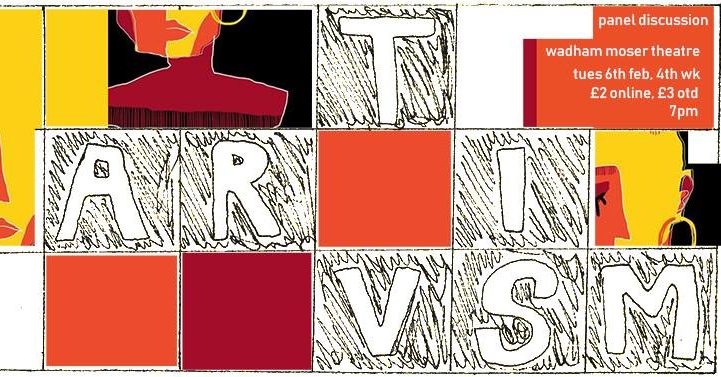Anticipating an evening of lively debate and discussion on a range of topical issues alongside fishing for much-needed facts for my art and politics essay, I made my way to Wadham for the Isis’s ‘Artivism: Can Art Revolutionise?’ panel discussion. Undeterred by the absence of one of the promised speakers, Vivian Oparah, the artistic community of Oxford had a good turnout for this much-anticipated discussion. The interest no doubt came from the calibre of the guests, most notably James Graham whose play Ink is currently running in the West End and also Christopher Beanland who is a journalist and author specialising in Brutalist architecture.
In the first section of the event where discussion was limited to the panel themselves, the hosts Leela Jadhav and Ha Jar raised some excellent questions and areas for debate. Whilst always trying to appear as though they were in agreement, both James and Christopher seemed to focus on different aspects of our interaction with art. For Beanland, the human element and personal response seemed to be his greatest consideration, however Graham was very keen to expand on ideas of a communal response and the power of theatre as a political body in addition to the emotional responses triggered in the individual. Interesting points were raised by them both although it became almost immediately clear that Graham was more flexible in adapting to the particular line of questioning than Beanland. Beanland seemed cautious in not saying anything too provocative leading to vaguer answers; preferring to talk about the importance of art in our everyday lives rather than its power as a force for change.
The question and answer section of the event, which made up the second half, provided a great opportunity to watch the speakers respond to completely unforeseen questioning. Both Graham and Beanland attempted to answer the questions from the audience to the best of their ability. However, there were moments of brain-wracking silence reminiscent of a tutorial where both you and your partner have forgotten to do the reading. Questions such as the inequality in art on the matter of race in the media and the political responsibility of artists certainly placed both of the guests on the hot seat. Beanland largely bypassed this via evasion whilst Graham made brave attempts to answer, when in doubt bringing the conversation back to the artistic development of Hull, his university town as well as the British city of culture.
A particularly engaging moment was when an audience member who had seen Graham’s play, Ink, in the West End shared her own emotional reaction to the drama. The speaker expressed her shock at finding herself liking Rupert Murdoch at a certain point in the play, and asking him whether such an emotional journey had been his intention. It must have been a great relief to her when he said yes.
Overall, it was a very well organised and polite panel discussion which opened up many areas for thought and debate, even if they were not all thoroughly explored. Interesting and thought provoking, but not revolutionary.



